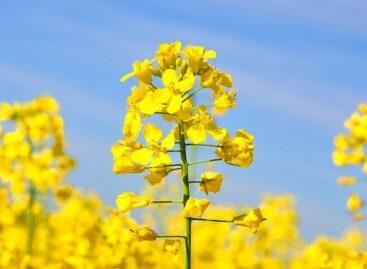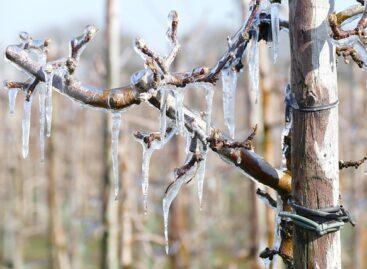The bill to prohibit the imposition of land tax was introduced
The bill has been submitted to the parliament, which prohibits the imposition of land tax on mayors and local governments – Minister of Agriculture István Nagy announced on Friday in Gödöllő, at the national meeting of the National Chamber of Agrarian Economy (NAK).

(Photo: Csaba Pelsőczy)
The draft law was jointly developed and submitted to the Parliament by NAK and the Association of Hungarian Farmers’ Associations and Farmers’ Cooperatives (MAGOSZ), as well as government actors. The minister recalled: at the end of March, he received a petition from the Hungarian farmers’ organizations, which was confirmed by 120,000 signatures, which was launched by MAGOSZ and NAK for the abolition of the land tax, after Péter Márki-Zay, the 2022 joint prime ministerial candidate of the left, the mayor of Hódmezővásárhely, imposed a land tax on the for local farmers. The head of the ministry said: he signed the petition himself, because it is not right that the farmers affected by the war, sanctions and historic drought should be cut off with land tax. Farmers do not need new burdens, but support at the local level as well – he emphasized. He added: the government is committed to the fact that agricultural land cannot form the basis of taxes, and this is enforced by legislation. István Nagy spoke about how, as a result of the Russian-Ukrainian war, a significant part of the export of Ukrainian grain and oil crops was diverted from the previously usual southern Ukrainian port route to the land routes of the European Union member states neighboring Ukraine. According to him, it was a symptom of this that, while in normal years around 40,000-50,000 tons of imports arrived from Ukraine to Hungary, in 2022 it approached 2 million tons, and even after that the incoming quantity was several hundreds of thousands of tons per month. Land imports were also stimulated by the operation of the EU solidarity corridors and the suspension of customs duties, he noted. “However, it has now become clear that the solidarity corridors do not fulfill their original mission, they do not contribute to the food supply of the population in Africa and the Middle East, but (…) they destroy the Central European producers with their lower price level and market displacement effect” – he pointed to it.
Ukrainian grain remains a problem
He reminded that in recent months, Hungary has acted jointly with the Poles, Slovaks, Romanians and Bulgarians in order to create meaningful EU measures to deal with the problem. The EU agreement has been reached – the minister said – but with regard to contracts with earlier dates, the EU legislation still allows imports. That is why the Hungarian government maintained the ban on contracts made before the publication of the EU legislation, i.e. before May 2, on the basis of national law, he pointed out. The minister also drew attention to the fact that the stronger presence of Ukrainian agricultural products than before could be a problem in the coming years as well.
NAK also examined the situation
Balázs Győrffy, the president of the NAK, evaluated the last ten years of the public body and said that in their document prepared five years ago, they formulated concrete proposals that lay the foundation for the development of Hungarian agriculture, and that significant progress has been achieved in many areas in recent years. He cited as examples the amendment of the Land Transfer Act, the legislation on family farms, the increase of Hungarian co-financing related to EU rural development resources to the maximum rate of 80 percent, the changes implemented in connection with undivided common property and the change of generations. Balázs Győrffy reported that in recent months, NAK once again examined the sector’s situation in a complex manner and formulated the necessary steps to improve efficiency and competitiveness. The president stressed that the organization has become an unavoidable and decisive player in the Hungarian economy and agriculture during the past decade. “It covers the entire value chain together with partner organizations that have stood by it all along, and by working together and acting in concert, it effectively represents the interests of its nearly four hundred thousand members,” he said.
MTI
Related news
Rapeseed prices fell worldwide and domestically
🎧 Hallgasd a cikket: Lejátszás Szünet Folytatás Leállítás Nyelv: Auto…
Read more >AM: Ministry of Agriculture pays special attention to supporting the horticultural sector
🎧 Hallgasd a cikket: Lejátszás Szünet Folytatás Leállítás Nyelv: Auto…
Read more >Related news
The Store of the Future opens again at the SIRHA Budapest exhibition! (Part 1)
🎧 Hallgasd a cikket: Lejátszás Szünet Folytatás Leállítás Nyelv: Auto…
Read more >








